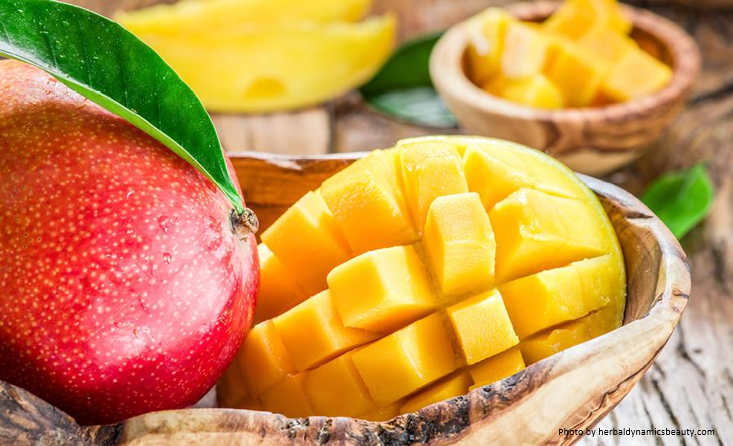Mangoes are the king of fruits. Of all the fruits in the world, the mango reigns supreme. Mangoes are grown throughout the frost-free world for their juicy, sweet fruits. There are thousands of mango varieties. Mangoes can be large or small, green, yellow, red, or even purple. They can taste like ice cream, peach cobbler, or lemon zest. Excitedly, they are one of the most consumed fruits in the world! The king of fruits indeed. Yet, in the US, they are considered an exotic treat.
Mangoes’ tropical origins
The mango tree (Mangifera indica) is thought to have originated in the northeastern region of India, Burma, and Bangladesh. This is an area that has a tropical to humid subtropical climate. Mangoes are large, evergreen trees in the sumac family. This is the same plant family that cashews, pistachios, and poison ivy belong to. As a result, if you are sensitive to poison ivy, be very careful around mangoes.
A sunny spot
As mentioned before, mangoes are adapted to tropical and sub-tropical climates. This makes them great candidates for Florida gardens. Plant mangoes in full sun with well-drained soil. They are adaptable to many soil conditions, but it is best to avoid overly wet or alkaline sites. If your landscape historically experienced cold weather, use caution planting mangoes in your landscape. Moreover, mango trees can tolerate some cold but freezing temperatures can kill them. If you are looking for a fruit tree to grow in containers, mango is not one of them. Mango prefers to spread out its roots. Check out our article for fruit trees that do well growing in a container.
King of Fruits’ Pests and pathogens
The subtropical climate of Florida favors the growth of mangoes, but it is also favorable to pests and pathogens. Scale insects, thrips, and mites attack mango trees in Florida. These pests do not normally cause significant damage on mature trees. However, scout for them on young trees. On the other hand, there are two fungal diseases that can cause serious problems. Powdery mildew and anthracnose are the primary diseases of mangoes in our state. Coincidentally, the diseases can cause flower and fruit drop, leaf spots, and damage to the fruit. These diseases can be managed by integrated pest management (IPM) practices and selecting disease-resistant varieties. For more information on pests on mango trees, click here.
Variety of flavors

Mangoes spread across the globe due to their immense popularity. This has allowed for the development of different flavors, sizes, and colors. Mangoes fall into two categories based on their origins. Indian-type mangoes are extremely colorful but can be very susceptible to anthracnose. On the contrary, Southeast Asian-type mangoes are usually yellow or green but are usually more resistant to anthracnose. With that said, some great varieties to try would be: ‘Nam Doc Mai’, ‘Pickering’, ‘Lancetilla’, and ‘Carrie’.
Taste of the tropics
Overall, mangoes are a wonderful addition to most Florida gardens. These large, tropical trees provide sweet, juicy fruits during the summer. Mangoes come in hundreds of shapes, sizes, flavors, and colors. If you plant a variety of cultivars, you can eat mangoes for many months. Lastly, mangoes need a sunny, well-drained spot to thrive. In conclusion, try planting a mango in your garden this season! To learn more about growing fruit trees in your landscape, check out Fruitscapes.
Mango Magic
Finally, June, every year is Mango Magic Month! Dr. Jonathan Crane, UF/IFAS Researcher for fruit crops in Homestead, Florida, did an interview with the National Institute of Food and Agriculture on the magic of mangoes.
Do you want to local fresh fruits or vegetables in Manatee County? Here is a GIS map of our local producers or venues selling local produce. https://tinyurl.com/ManateeCountyProducers
Mack Lessig, Community Gardens Program Coordinator, created this article for Manatee County Department of Ag and Extension Services in partnership with the University of Florida/IFAS. 941-722-4524 Ext 1821 or MLessig@ufl.edu
Our plant diagnostic clinic is open Monday, Tuesday, Thursday, and Friday from 9:00 am to 4:00 pm. Bring us your landscaping and gardening questions.
If you want to grow mangoes commercially, reach out to Lisa Hickey. She is the Sustainable Food Systems Extension Agent who brings research and diagnostics to the commercial fruit and vegetable producers. Lisa.Hickey@ufl.edu, same office number, extension 1817.
 2
2
